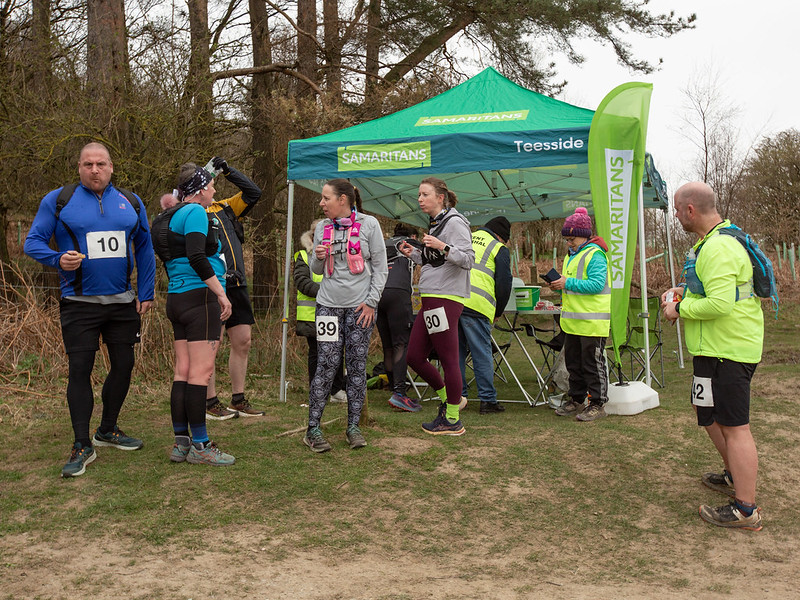The Importance of Volunteers
The importance of volunteers.
The role of volunteers has become a focal point of discussion in the context of non-profit and for-profit small-scale sports event businesses. These organisations, which include local race organisers, small triathlon companies, or community-focused sports event enterprises, often rely heavily on volunteers to facilitate their operations (Mohd Rashid et al., 2024) and ensure the success of their events. Unlike large-scale sports events backed by significant sponsorships and budgets, for-profit small enterprises operate within tight margins, making the use of volunteers a critical component of their business models (Phillips and Phillips, 2011).
My research in January 2025 investigated and sought to understand the value that volunteers bring to such businesses, examining their contributions, the challenges organisations face in managing them, and the implications of potentially replacing volunteers with paid staff.
The primary focus of this study is on understanding the role and value of volunteers in the delivery of small-scale sports events run by for-profit small and medium-sized enterprises (SMEs). Volunteers contribute to a wide range of tasks, including event setup, registration, crowd management, and post-event cleanup (Mitchell, 2023, Xia, Xu and Zhang, 2024). I investigated how businesses utilise volunteers to understand their operational dependencies on unpaid contributions, the expectations placed upon volunteers, and how their roles are perceived both by the organisations and the volunteers themselves.
I looked at the challenges faced by these organisations in recruiting, retaining, and managing volunteers (Newman et al., 2018), as well as their reliance on partnerships with public sector or community organisations to source volunteers (Mitchell, 2023). Understanding these dynamics is crucial for evaluating the sustainability of the current volunteer-reliant model (Mitchell, 2023) within the for-profit sector and assessing whether these businesses could thrive, or even survive, without volunteer support.
Without going into too much detail I confirmed that volunteers are essential, if not critical to the success and sustainability of Small medium enterprises delivering small-scale sports events and these businesses would not function profitably without them. Both volunteers and business owners recognise that these small-scale sports events would not take place without the use of volunteers. The small and intimate nature of the events and the businesses work hand in hand for mutual benefit as this helps create a close-knit community where volunteerism can thrive. The intrinsic motivation of the volunteers and the social return they get from this is the key reason the events are a success and why volunteers return time and time again. The businesses must continue to deliver and develop opportunities for their volunteer workforce to achieve these aspects to ultimately fulfil their satisfaction requirements of volunteering.
I identified three key areas where businesses should aim to embed in their business strategy.
1) Volunteer satisfaction – the businesses should focus on how they can fulfil the needs of the volunteers, not how the volunteers can fulfil a role for the business. Taking this person centric approach will help the business recruit and retain volunteers. To do this, volunteers should be asked or even surveyed to ascertain their wants, needs and objectives. By being fully informed with this type of insight the business can allocate or create roles and responsibilities for mutual benefit, satisfying the volunteer and delivering a successful event. Conducting evaluations regularly will support the development of roles and allow the business to evolve and innovate where needed.
2) Communication – as the disconnect in communication identified within this research suggests this needs to be addressed. Volunteers require detailed communication and information about their roles and responsibilities, what they can and can’t do and what is expected of them. Although the businesses feel they are fulfilling this, it is not being received this way. Developing better communication methods and developing a greater understanding of what is needed by the volunteers could be solved during consultation and surveying mentioned above. Prioritising detailed descriptions of jobs will be a good first step.
3) Community – continuing to develop a community where volunteers feel embedded in the organisation will be a crucial part of retaining volunteers and sustaining the organisation. By spending time facilitating this the business will benefit exponentially. It would be anticipated that there would be very little financial outlay with the aid of social media and online platforms however, it is recommended that the business conduct a thorough cost analysis and adjust their budgets accordingly for future events. The community aspect should be seen as a golden thread for volunteerism within the organisation. This community will support both volunteer satisfaction and communication and should be considered an essential part of the business.
We at Uprevail fully understand the value of people not only volunteers but participants too. This is why we take a PEOPLE FIRST approach to everything we do. We aim to be as clear and transparent as we can, the safety of everyone associated with our events is paramount, and we strive to ensure that every single person has a positive and memorable experience with us. We will not stand still, we will constantly review and innovate to improve what we do and how we deliver events.
